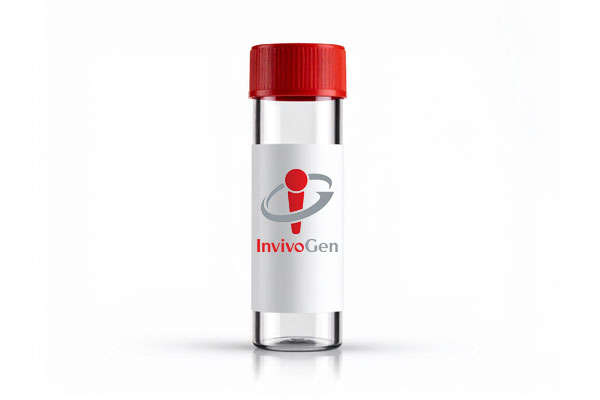
pUNO1-hTLR5-DN
-
Cat.code:
puno1-htlr5-dn
- Documents
Expression-ready ORF Clones
Alias : TLR5, CD285
TLR5-DN (ΔTIR) : Dominant Negative TIR-less TLR5 gene
TLR5 is the Toll-like molecule that recognizes flagellin from both Gram+ and Gram- bacteria. It was identified by the presence of the TIR domain and is expressed in spleen, PBL and epithelial cells. Activation of the receptor stimulates the production of proinflammatory cytokines, such as TNF-α, through signaling via the adaptor protein MyD88 and the serine kinase IRAK [1, 2]. TLR5 can generate a proinflammatory signal as a homodimer suggesting that it might be the only TLR required for flagellin recognition [2]. Recent data suggest that TLR5 forms heteromeric complexes with TLR4 in macrophages in response to flagellin induction [3].
TLR5-DN is a TIR-less form of the TLR5 gene generated by deleting the TIR domain (501 bp). This truncated TLR5 gene is still able to recognize its ligands but is unable to induce the signaling cascade.
1. Gewirtz AT. et al. (2001). J Immunol, 167(4):1882-5.
2. Hayashi F. et al. (2001). Nature, 410(6832):1099-103.
3. Mizel SB. et al. (2203). J Immunol. 170(12):6217-23.
Specifications
Human TLR5-DN (pUNO1-hTLR5-DN)
ORF size : 2076 bp
Subclone : NcoI - NheI
Mouse TLR5-DN (pUNO1-mTLR5-DN)
ORF size : 2082 bp
Subclone : NcoI - NheI
Contents
- 20 µg of lyophilized DNA
- 2 x 1 ml blasticidin at 10 mg/ml
![]() Product is shipped at room temperature.
Product is shipped at room temperature.
![]() Lyophilized DNA should be stored at -20°C. Upon receipt, store blasticidin at 4°C or -20°C.
Lyophilized DNA should be stored at -20°C. Upon receipt, store blasticidin at 4°C or -20°C.
![]() Resuspended DNA should be stored at -20°C and is stable for up to 1 year.
Resuspended DNA should be stored at -20°C and is stable for up to 1 year.
![]() Blasticidin is a harmful compound. Refer to the safety data sheet for handling instructions.
Blasticidin is a harmful compound. Refer to the safety data sheet for handling instructions.
DOCUMENTS
Documents
Technical Data Sheet
Certificate of analysis
Need a CoA ?